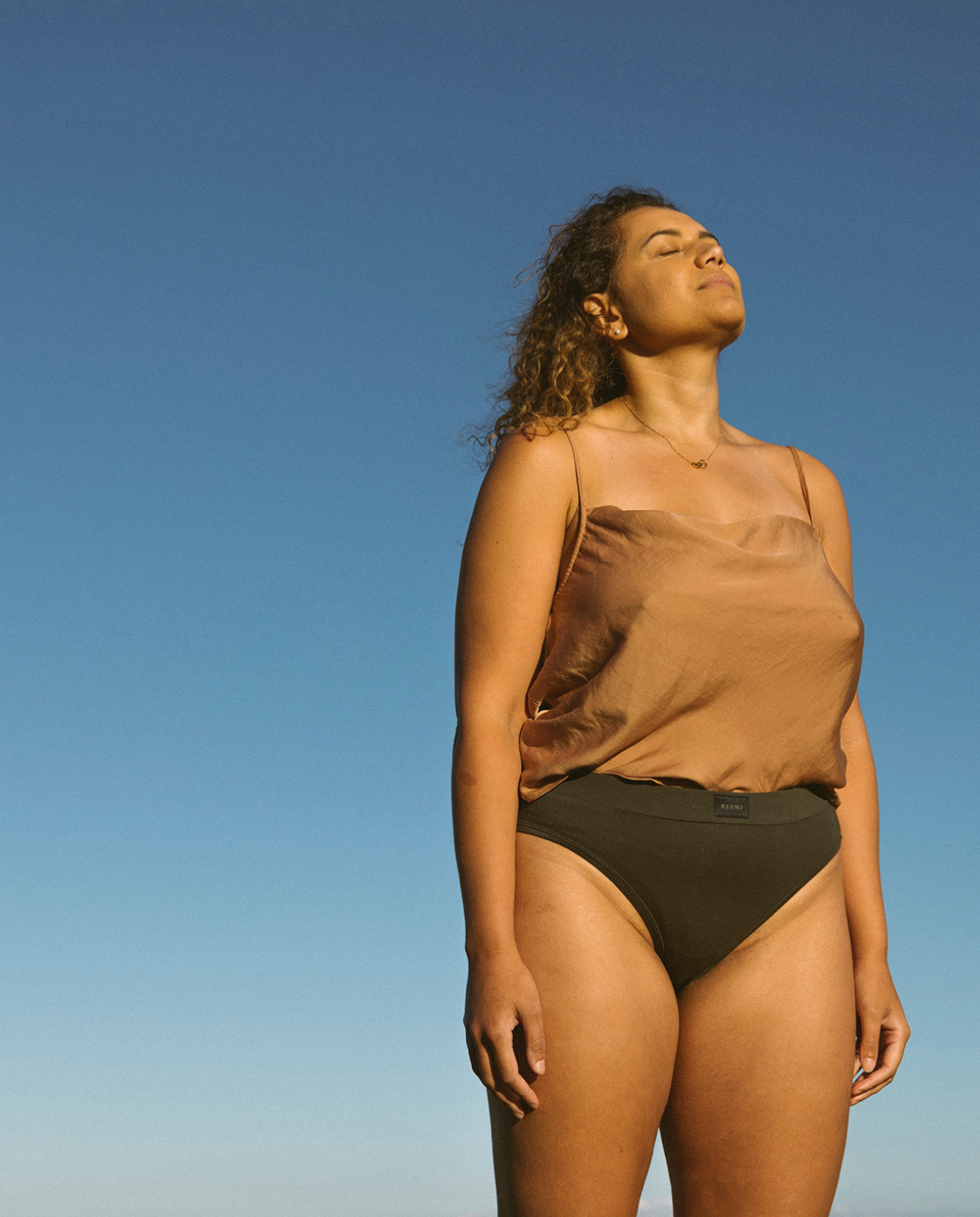
Covid Fashion Guide
Share
Our work with Reemi has started in the garment industry and it’s our vision to expand into humanitarian spaces – to reach menstruators in the most vulnerable places. We currently work alongside those in the garment industry, from the workers themselves to some of the most influential manufacturers and brands in the world. We have learned a lot on our journey and would love to share a snapshot of our findings in the fashion industry.
I’ve been asked a lot about ethical fashion. The questions are mostly summarised into two questions –
1. What are you wearing?
2. Is this a good brand or a bad brand?
Whenever I get asked the first question, the feminist in me comes out roaring. “Would you ask a man that question!” And then I remind myself of the context because well, context is everything. In the context of my experience, it’s a totally fair and valid question.
The latter is more difficult, although I can be seen to be a walking encyclopedia of case studies and examples of ‘bad’ or ‘good’ practices, I am wary that the lens in which I tell these stories are based on my personal values system. ie. Do I place importance on the living wage or do I acknowledge that in some countries government’s control wages? Do I think organic cotton is superior to tencel? Is a brand acknowledging that they’re not doing well in some things, just as good as acknowledging what they’re doing great in?
I have sat in basements where workers live. I’ve listened to the complexity of a regular paycheck and the ability to now be able to eat three meals a day, while being absolutely aware that one ill family member could lead to an endless cycle of debt.
I have sat in boardrooms with the manufacturers of the biggest brands in the world, with heads of sustainability of global brands and listened to their attempts to make the world better and more sustainable.
Here’s the most brief summary I can possibly write that articulates my thoughts around the fashion industry:
1. We should all care because fashion is at the intersection of four major challenges of our time:
a. Climate Change – environmental degradation from one of the most polluting industries in the world.
b. Hyper consumerism – Our insatiable desire to own more things.
c. Racial injustice – Non-western communities being exploited for the benefit of western societies.
d. Social media – An accelerated obsession with appearance, aesthetics and information spread by non-experts.
2. Change starts with the consumer but change happens with the brand. As an individual or a small fry in a system of consumerism, it’s hard to believe our purchasing decisions make a difference. But they do. We vote with our dollars about the world we want to live in. If consumers are educated and push for change (btw asking questions is free), if there is enough of a swell, the brands will sit up and take notice. They have and they will. One group lamented to me once that their innovative and sustainable cotton from factory floors was not popular with consumers, so the initiative was shelved.
3. A lack of marketing regulation has caused confusion. Everyone is ‘sustainable’ or ‘ethical.’ Even us at Reemi are not immune to using these phrases for our period underwear! But as a consumer it’s terribly difficult to know what this means because there is no regulation about using these words. Anyone can use them.
On the flip side, there are 1001 certifications a brand could strive to get. It makes it really difficult to know what certifications are good or right. Do I need SEDEX / SGS / WRAP / BCI / GOTS / AMFORI BSCI / ACCORD / OEKO-TEX / BETTER WORK…. The list goes on. It means we as consumers, need to do research to know what’s ‘under the hood.’
4. Ethical and sustainable fashion are one of the same. Environmental issues and poverty go hand in hand. I will personally shout this message from the rooftop of every rooftop I can climb up onto. The most vulnerable people in the world are the most affected by climate change because they have the least amount of choice. Garment workers live by rivers polluted with denim dye, so they can no longer fish from them. They are so inextricably linked that to care about one, is to care about the other.

So where does this lead us, as consumers?
-
Understand the issues
-
Decide on your values
-
Research brands you want to buy from
-
Vote with your wallet and/or your time
Don’t forget it’s free to ask retail staff questions about their product or email customer service. And trust me if enough people ask questions, brands will respond. It really works.
Values are the centrepiece of the new Covid Fashion Guide by Tear Fund and it’s why I highly recommend this new guide to purchasing clothing. It better reflects the complexity of the fashion industry and gives us (the consumers), the choice to do the hard work and research the issues ourselves, as well as deciding what our own values and priorities are.
So how do I respond to my two most commonly asked questions? I always say, “what are your values? What do you care about?” And that’s where I start the conversation. Because maybe that day I’m wearing heels from Zara I bought at an airport when I was on my way to a conference and forgot to pack a pair. And maybe those heels are only one of three pairs that I own and have lasted 5 years. It’s not always as simple as answering “Zara.”
Be here for improvement, be here for change and be here for the complexity.
Want to know more about Reemi? Sign up to our newsletter here or make the switch to a sustainable period by owning a pair of our period underwear or email us a question!

